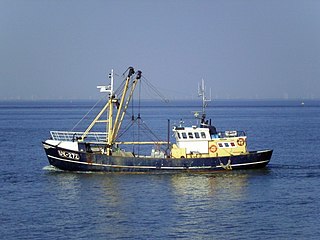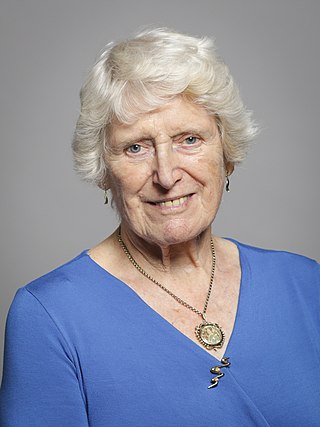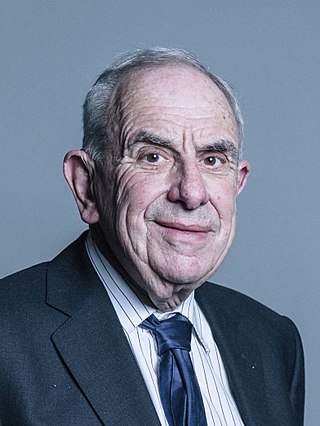
The High Court of Justiciary is the supreme criminal court in Scotland. The High Court is both a trial court and a court of appeal. As a trial court, the High Court sits on circuit at Parliament House or in the adjacent former Sheriff Court building in the Old Town in Edinburgh, or in dedicated buildings in Glasgow and Aberdeen. The High Court sometimes sits in various smaller towns in Scotland, where it uses the local sheriff court building. As an appeal court, the High Court sits only in Edinburgh. On one occasion the High Court of Justiciary sat outside Scotland, at Zeist in the Netherlands during the Pan Am Flight 103 bombing trial, as the Scottish Court in the Netherlands. At Zeist the High Court sat both as a trial court, and an appeal court for the initial appeal by Abdelbaset al-Megrahi.

'Allo 'Allo! is a British sitcom television series, created by David Croft and Jeremy Lloyd, starring Gorden Kaye, Carmen Silvera, Guy Siner and Richard Gibson. Originally broadcast on BBC1, the series focuses on the life of a French café owner in the town of Nouvion, during the German occupation of France in World War II, in which he deals with problems from a dishonest German officer, local French Resistance, the handling of a stolen painting and a pair of trapped British airmen, all while concealing from his wife the affairs he is having with his waitresses.

R v Secretary of State for Transport was a judicial review case taken against the United Kingdom government by a company of Spanish fishermen who claimed that the United Kingdom had breached European Union law by requiring ships to have a majority of British owners if they were to be registered in the UK. The case produced a number of significant judgements on British constitutional law, and was the first time that courts held that they had power to restrain the application of an Act of Parliament pending trial and ultimately to disapply that Act when it was found to be contrary to EU law.

Gordon Irving Kaye, known professionally as Gorden Kaye, was an English actor, best known for playing womanising café owner René Artois in the television comedy series 'Allo 'Allo!.

Ann Elizabeth Oldfield Butler-Sloss, Baroness Butler-Sloss, GBE, PC is a retired English judge. She was the first female Lord Justice of Appeal and was the highest-ranking female judge in the United Kingdom until 2004, when Baroness Hale was appointed to the House of Lords. Until June 2007, she chaired the inquests into the deaths of Diana, Princess of Wales, and Dodi Fayed. She stood down from that task with effect from that date, and the inquest was conducted by Lord Justice Scott Baker.

The judiciary of Gibraltar is a branch of the Government of Gibraltar that interprets and applies the law of Gibraltar, to ensure equal justice under law, and to provide a mechanism for dispute resolution. The legal system of Gibraltar is based on English law and is a mix of common law and statute. The hierarchical system of courts includes a magistrates' court, a supreme court and a non-resident appellate court.
In US law, false light is a tort concerning privacy that is similar to the tort of defamation. The privacy laws in the United States include a non-public person's right to protection from publicity that creates an untrue or misleading impression about them. That right is balanced against the First Amendment right of free speech.

Leonard Hubert "Lennie" Hoffmann, Baron Hoffmann is a senior South African–British judge. Currently, he serves as a Non-Permanent Judge of the Court of Final Appeal of Hong Kong; he formerly served as a Lord of Appeal in Ordinary from 1995 to 2009.
Sir Iain Glidewell PC was a Lord Justice of Appeal and Judge of Appeal of the High Court of the Isle of Man. He was made a privy councillor in 1985.
Sir David Eady is a retired High Court judge in England and Wales. As a judge, he is known for having presided over many high-profile libel and privacy cases.
Modern libel and slander laws in many countries are originally descended from English defamation law. The history of defamation law in England is somewhat obscure; civil actions for damages seem to have been relatively frequent as far back as the Statute of Gloucester in the reign of Edward I (1272–1307). The law of libel emerged during the reign of James I (1603–1625) under Attorney General Edward Coke who started a series of libel prosecutions. Scholars frequently attribute strict English defamation law to James I's outlawing of duelling. From that time, both the criminal and civil remedies have been found in full operation.
Privacy in English law is a rapidly developing area of English law that considers situations where individuals have a legal right to informational privacy - the protection of personal or private information from misuse or unauthorized disclosure. Privacy law is distinct from those laws such as trespass or assault that are designed to protect physical privacy. Such laws are generally considered as part of criminal law or the law of tort. Historically, English common law has recognized no general right or tort of privacy, and offered only limited protection through the doctrine of breach of confidence and a "piecemeal" collection of related legislation on topics like harassment and data protection. The introduction of the Human Rights Act 1998 incorporated into English law the European Convention on Human Rights. Article 8.1 of the ECHR provided an explicit right to respect for a private life. The Convention also requires the judiciary to "have regard" to the Convention in developing the common law.
Breach of confidence in English law is an equitable doctrine that allows a person to claim a remedy when their confidence has been breached. A duty of confidence arises when confidential information comes to the knowledge of a person in circumstances in which it would be unfair if it were disclosed to others. Breach of confidence gives rise to a civil claim. The Human Rights Act 1998 has developed the law on breach of confidence so that it now applies to private bodies as well as public ones.
Sir Michael George Tugendhat, styled The Hon. Mr Justice Tugendhat, and referred to as Tugendhat J in legal writing, is a retired High Court judge in England and Wales. He was the High Court's senior media judge, taking over that role from Mr Justice Eady on 1 October 2010.
The British privacy injunctions controversy began in early 2011, when London-based tabloid newspapers published stories about anonymous celebrities that were intended to flout what are commonly known in English law as super-injunctions, where the claimant could not be named, and carefully omitting details that could not legally be published. In April and May 2011, users of non-UK hosted websites, including the social media website Twitter, began posting material connecting various British celebrities with injunctions relating to a variety of potentially scandalous activities. Details of the alleged activities by those who had taken out the gagging orders were also published in the foreign press, as well as in Scotland, where the injunctions had no legal force.

CTB v News Group Newspapers is an English legal case between Manchester United player Ryan Giggs, given the pseudonym CTB, and defendants News Group Newspapers Limited and model Imogen Thomas.
Time, Inc. v. Hill, 385 U.S. 374 (1967), is a United States Supreme Court case involving issues of privacy in balance with the First Amendment to the United States Constitution and principles of freedom of speech. The Court held 6–3 that the latter requires that merely negligent intrusions into the former by the media not be civilly actionable. It expanded that principle from its landmark defamation holding in New York Times v. Sullivan.

St Peter's Church, also known as Huddersfield Parish Church, is a Church of England parish church in Huddersfield, West Yorkshire, England. There has been a church on the site since the 11th century, but the current building dates from 1836. It is on the Kirkgate near Southgate in the centre of the town and is a Grade II* listed building.

PJS v News Group Newspapers Ltd [2016] UKSC 26 is a UK constitutional law case in which an anonymised privacy injunction was obtained by a claimant, identified in court documents as "PJS", to prohibit publication of the details of a sexual encounter between him and two other people. Media outside England and Wales identified PJS as David Furnish.

The Protection from Online Falsehoods and Manipulation Act 2019, commonly abbreviated as POFMA and known colloquially as Fake News Law, is a statute of the Parliament of Singapore that enables authorities to tackle the spread of fake news or false information.